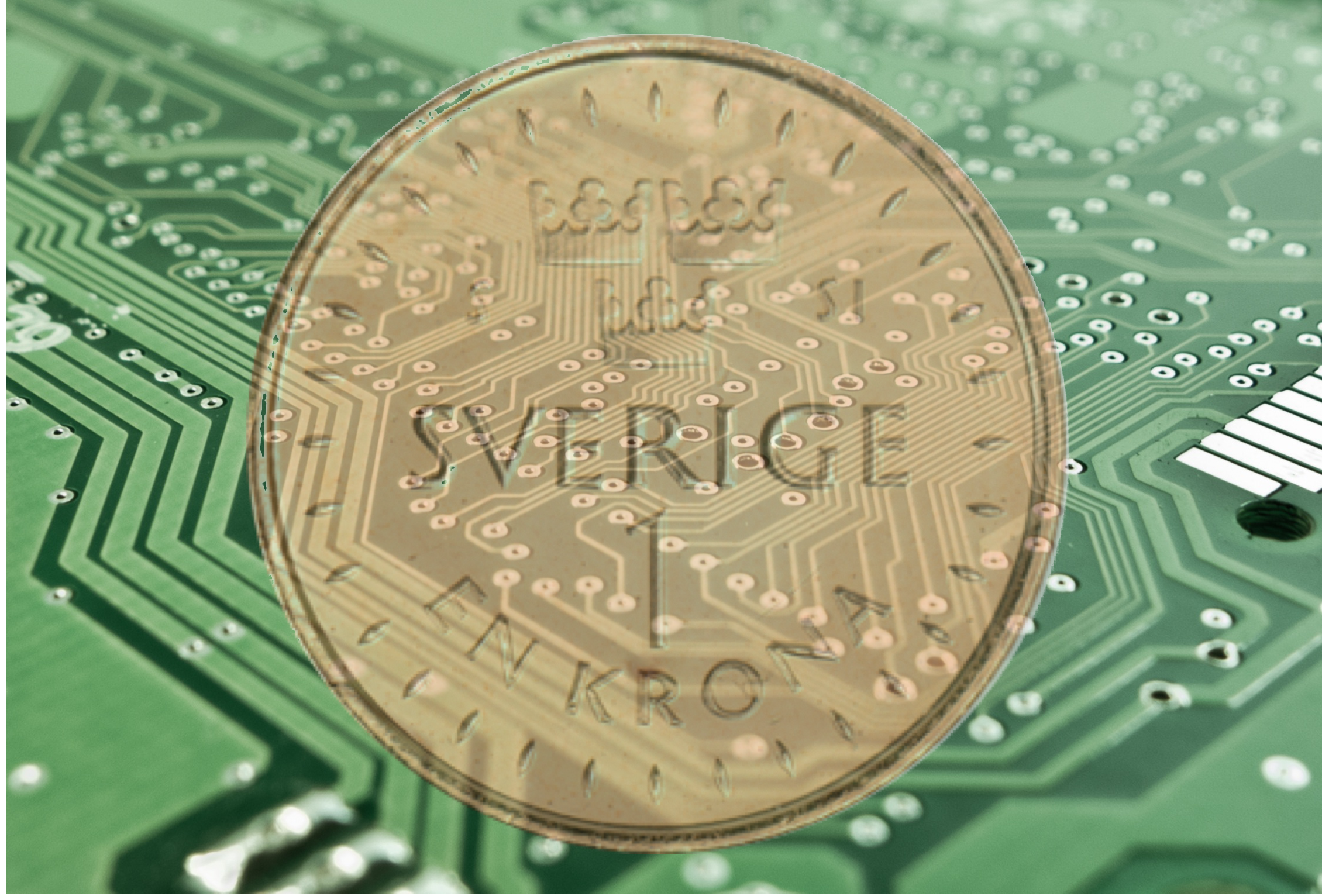Goodbye Cash, Hello E-krona
What do you do when cash usage declines? The Riksbank—Sweden’s central bank—has taken steps to redefine the concept of legal tender. But it also intends to issue a digital currency, the e-krona.
Central bank digital currency is a relatively new concept. Think of it as a form of central bank–issued electronic money that is available for everyone to use. Up to now, the public’s engagement (both in Sweden and elsewhere) with central bank money has been limited to banknotes. While central banks like Sweden’s Riksbank have been issuing electronic money for many decades, usage of this form of money has been limited to commercial banks that keep accounts at the central bank.
The Riksbank has been debating the possibilityof issuing an e-krona since early 2017. Just last month, it finally announceda pilot program. The idea is to develop a “tested and ready e-krona” that can be launched if the Riksbank sees fit.
Both the e-krona and the proposed update to legal tender laws are the Riksbank’s response to declining popularity of cash in Sweden. Surveys show that the proportion of cash payments in Sweden’s retail sector has fallen from 40 percent in 2010 to about 13 percent in 2018. The quantity of banknotes outstanding has tumbled to half of what it was 10 years ago.
The Riksbank has three worries about an increasingly cashless future. I draw these from Section 1.1.7 of its first reporton the e-krona project:
- As cash becomes harder to access, certain groups that depend on cash may run into problems making payments.
- Cash is a highly robust form of payment. Without it, Sweden would be more vulnerable during natural disasters and wars.
- If cash disappears, the public will lose its access to a risk-free means of payment.
I’m going to look at each of these worries and try to understand whether and how the Riksbank’s e-krona will help.
According to the Riksbank, the groups that depend on cash include “older people, people with disabilities or those who, for different reasons, do not have access to payment instruments other than cash.” While it is certainly important to worry about these people losing access to the payments system, it isn’t apparent to me why the Riksbank expects the e-krona to help.
Cash is easy to use. Unlike existing digital-payments options such as the bank-provided Swish payments system, a banknote does not require an account, additional hardware, or a connection to the internet. Given that a digital alternative like the e-krona will require all of these, it is difficult to understand how it will do a better job than Swish at including those who have been left behind.
What about the emergency argument? Cash is an incredibly robust form of payment. To begin with, cash payments don’t require that the electrical and communications grids be up and running. Second, the cash system is managed in a decentralized manner. Rather than a single centralized institution managing the system, individuals and businesses are responsible for holding note balances and executing transactions. Neither is true of bank-issued money. So if a disaster occurs that incapacitates the issuing bank or takes out the grid, digital transactions will grind to a halt. Cash transactions can continue unhampered.
It’s not apparent to me how an e-krona replicates cash’s usefulness during emergencies. Since it is digital, the e-krona depends on the electrical and communications systems being up and running. And since the e-krona system will be run by a single administrator, any attack that temporarily incapacitates the central bank will bring down the entire system.
As for the third point, let’s assume it is important that Swedes have access to a risk free means of payment. While cash is certainly one alternative, it is by no means the only one. Swedish bank balances are insured up to SEK 950,000 (approximately $100,000). For amounts larger than this, Swedish individuals and businesses can buy liquid government securities. So it is not evident to me that the e-krona brings anything to the table that isn’t already there.
The Riksbank grants the point that the public already has access to risk-free money in the form of insured deposits but maintains that if deposit insurance is activated, “it can take up to a week before the money is paid out.” That may be the case, but surely a seven-day delay isn’t a pressing enough reason to create a new and potentially expensive payments platform like the e-krona.
Conspicuously absent in the list of Riksbank concerns about cashlessness is the one I find most important: the loss of anonymity. As I’ve written in “Anonymous Digital Cash” and “Money Is Privacy,” the anonymity provided by cash is important. If transactions can be exploited for the information they provide, then consumers might choose to avoid making them. For instance, a buyer might have concerns that a seller intends to pawn off the buyer’s data to a telemarketer or an identity thief. An anonymous medium like cash provides consumers with a mechanism for withholding their personal information. They can proceed to make transactions they would otherwise avoid, with social welfare improving as a result.
Cash already provides these benefits in the offline world. What is missing is an online means of making anonymous payments. Given that central banks are the main providers of offline-payments anonymity, it seems natural that they would also provide online anonymity through the issuance of digital currency.
According to the Riksbank’s most recent report, the e-krona might offer some anonymity. However, the Riksbank says it will only enable anonymous transactions in a way that conforms to current anti-money-laundering and e-money regulations. These laws allow electronic-money providers to supply individuals with anonymous money up to the equivalent of €250, a limit that will likely be lowered to €150 in 2020. They further stipulate that e-money issuers are required to monitor transactions for unusual or suspect transactions.
As long as the e-krona’s design conforms to such regulations, it will offer an extremely constricted form of anonymity, one that is likely to be constricted even more over time. This would be a missed opportunity, especially since the Riksbank acknowledges that as a central bank it “does not need to observe” the narrow dictates of e-money laws. For now, the Riksbank’s pilot project will involve traceable transactions. One hopes that as the project evolves, the central bank will rethink its approach. The world is watching you, Sweden.












